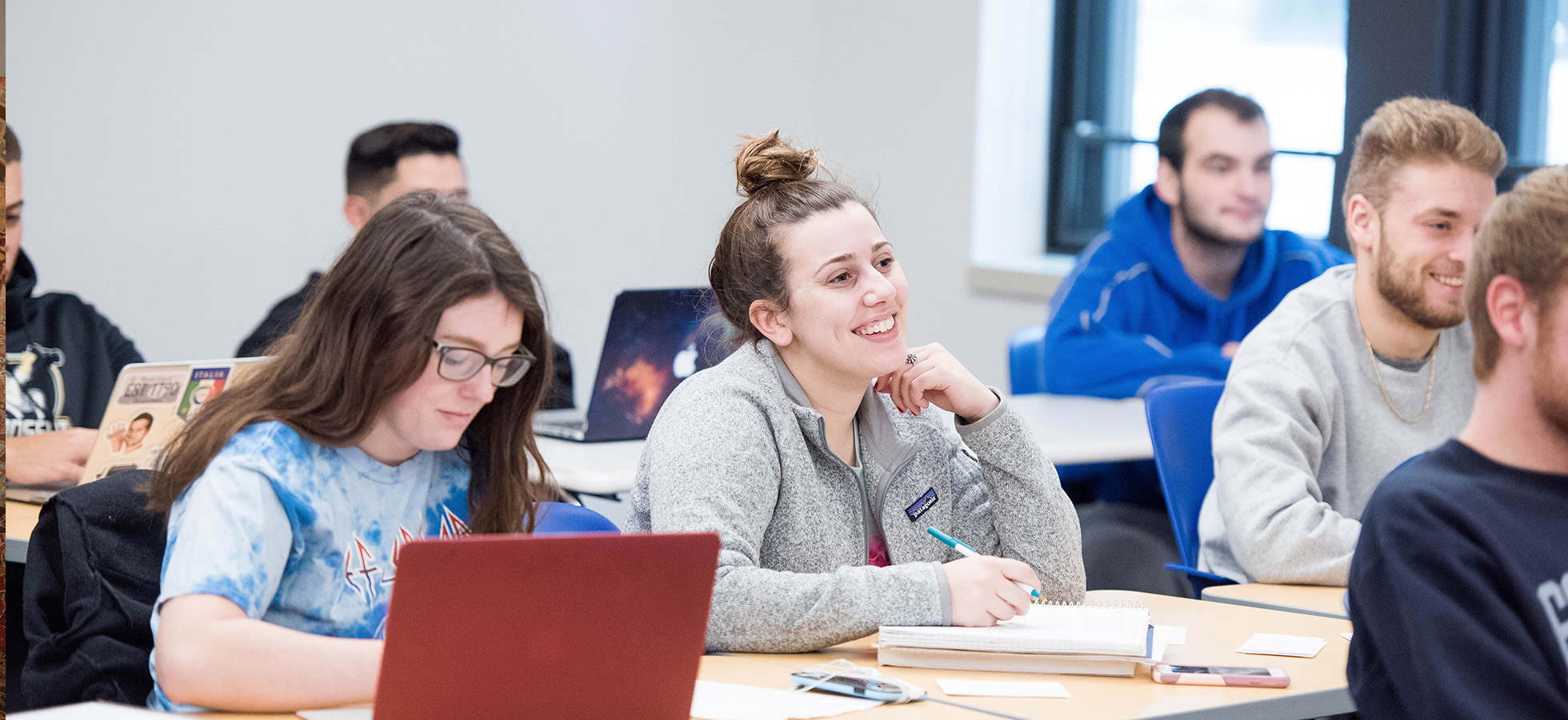National Science Foundation Grant to Train Mathematics Teachers

Amidst a shortage of mathematics teachers in Massachusetts, Assumption Professors Jessica A. de la Cruz, Ph.D., associate professor of education, and Joseph Alfano, Ph.D., assistant professor of mathematics, have secured an $118,315 National Science Foundation (NSF) grant to support a project to address the teaching shortage.
“The Assumption Education Mathematics Capacity Building Project (ACE) will investigate the pathways that lead high school, community college transfer, and undergraduate students to develop mathematics interest, and to pursue mathematics education academic majors and careers,” said Prof. de la Cruz. She added that through the ACE Project, a one-year Robert Noyce Teacher Scholarship Capacity Building project, Assumption will lay the foundation for a future Robert Noyce Teacher Scholarship and “establish mechanisms to increase its mathematics education enrollment and graduation rates.”
Profs. de la Cruz and Alfano will work with up to 20 first and second year undergraduate students who are either interested in STEM or undeclared, to pilot an “intensive mathematics teaching leadership curriculum and summer program, as a means to promote the mathematics and education dual major pathway.” As part of the yearlong project, Assumption students will also mentor area high school students through the Assumption Mathematics Academy (ACMA). The undergraduate students will work together to develop ACMA content through coursework leading up to a summer camp and then deliver instruction during the weeklong summer program with their high school pupils.
Not only will Assumption undergraduates gain valuable teaching experience early on in their college careers, but also in addition, according to Prof. de la Cruz, the grant will allow Assumption to provide the ACMA day camp free of charge to accepted local high school students and provide stipends for the undergraduates who facilitate the ACMA.
“By enhancing connections with local public schools, building systems to attract current STEM undergraduates to mathematics education through streamlined communication, advising, and outreach, and by establishing new articulation agreements with local community colleges, the ACE Project will strengthen the institution’s capacity to recruit, retain, and graduate mathematics education students,” said Prof. de la Cruz. “We hope to develop an advantageous and vibrant teacher leadership program for our undergraduates that helps them to determine if teaching is the right career path for them, as well as provides a successful summer enrichment opportunity for local high school students.”
This project will begin this spring and go through summer 2020.
